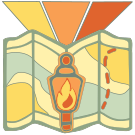Engagement: Difference between revisions
imported>Jacob Robertson (Created page with " - {{Everyday Enlightenment Framework Chart}}") |
No edit summary |
||
| (22 intermediate revisions by 2 users not shown) | |||
| Line 1: | Line 1: | ||
{{Map of Everyday Enlightenment | |||
|HideBeacons=yes | |||
|HideRealms=no | |||
|HideDeluded=yes | |||
|HideLearning=yes | |||
|HideTraining=no | |||
|HideMasterful=yes | |||
|HideEnlightened=yes | |||
|HideAttention=yes | |||
|HideAdaptation=yes | |||
|HideAssociation=yes | |||
|HidePathways=yes | |||
|HideLenses=yes | |||
|HideTrails=yes | |||
|HideGuides=yes | |||
|HideLandmarks=yes | |||
}} | |||
{{Realm Info Box | |||
|Name={{PAGENAME}} | |||
|image=Engagement Page.jpg | |||
}} | |||
{{Realms Overview}} | |||
[[Category: | {{Engagement Overview}} | ||
{{ | |||
{{Realms Instructions}} | |||
{{Realms List|Realm=Engagement}} | |||
[[Category:Realms|{{Category Marker}}]] | |||
{{Page Type|Type=Realm|Name={{PAGENAME}}}} | |||
{{DEFAULTSORT:Realm2}} | |||
Latest revision as of 14:08, 30 September 2023

The Realms of Everyday Enlightenment are a conceptual way to organize the Landmarks by their complexity and difficulty. Landmarks each have a Realm they are assigned to, which makes it easy to group them and think about how to progress. As you move from one Realm to the next, you will discover a deeper richness to your meditative practices, and will find greater peach and clarity.
Most people that are pursuing Meditative practices daily will be in the Realm of Engagement, which simply means they learned enough foundational methods and theory and made a shift to an active and regular practice.
Take a look at each of the Landmarks below, and see which sound interesting and achievable. Once you've identified a Landmark, read through it and then see which Trails, Guides or Lenses include that Landmark, and explore those links as well.
Landmarks of Engagement
- Experiment with Mindfulness and Television invites you to experience Mindfulness in another way to discover that Experience the Now is more complicated than just recognizing sights and sounds, it also means paying attention to your own mind, and in this case particularly how your own mind is perceiving and reacting to The Now.
- Explore Presence While Walking shows some perceptions shifts that provide deeper understanding of how to Experience the Now, especially relating to how the present moment is the only moment that ever exists in consciousness.
- Extended Witnessing asks whether you are able to experience a form of Witnessing for longer periods of time.
- Listen to Someone Mindfully is a wonderful practice where you fully devote all your attention to another person. The main points are to give the other person all the time they need to say what they want to say, and to pay attention fully to that person and what they say. This practice is related to Mindfulness and Other-Centeredness, but the end result is an increase in Interconnectedness.
- Perceiving Parts as a Whole is a chance to perceive how a lot of things we see everyday can be grouped together naturally to form nearly arbitrary "wholes".
- Try Headlessness While Walking is a chance to practice Headlessness by simply opening up your perception to the entire world, and filling your entire consciousness with your visual field. The intended result is a mind clear of all thoughts, and an openness and vastness that comes from experiencing everything you see as it is in this moment. The Headless Way is mostly tied to the Beacon of Association, but these concepts are part of practices more related to the Beacon of Attention because as we allow our consciousness to fill with what we see around us, we become more fully present and have a new way to Experience the Now.
- Try Mindfully Watching Television shows how you can treat Television as another object for your Mindfully Attention. Simply sit back, enjoy your TV show, but apply some Mindfulness to that time.
- Try Out Other-Centeredness is a chance to try something in two different situations, once with someone you are talking to directly, and once with a person in the distance. For this first exercise you're trying to switch perspectives and see what another person might see.
